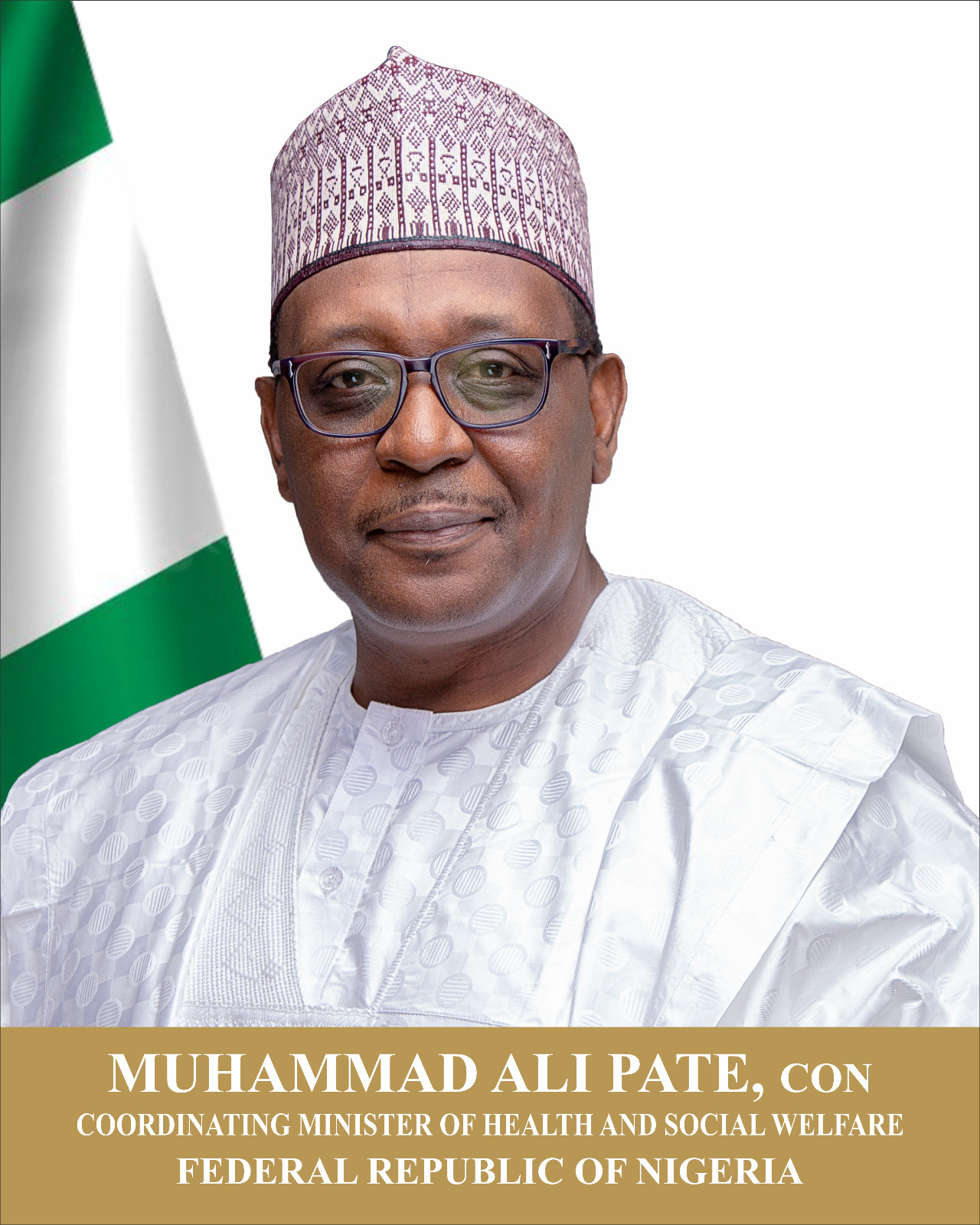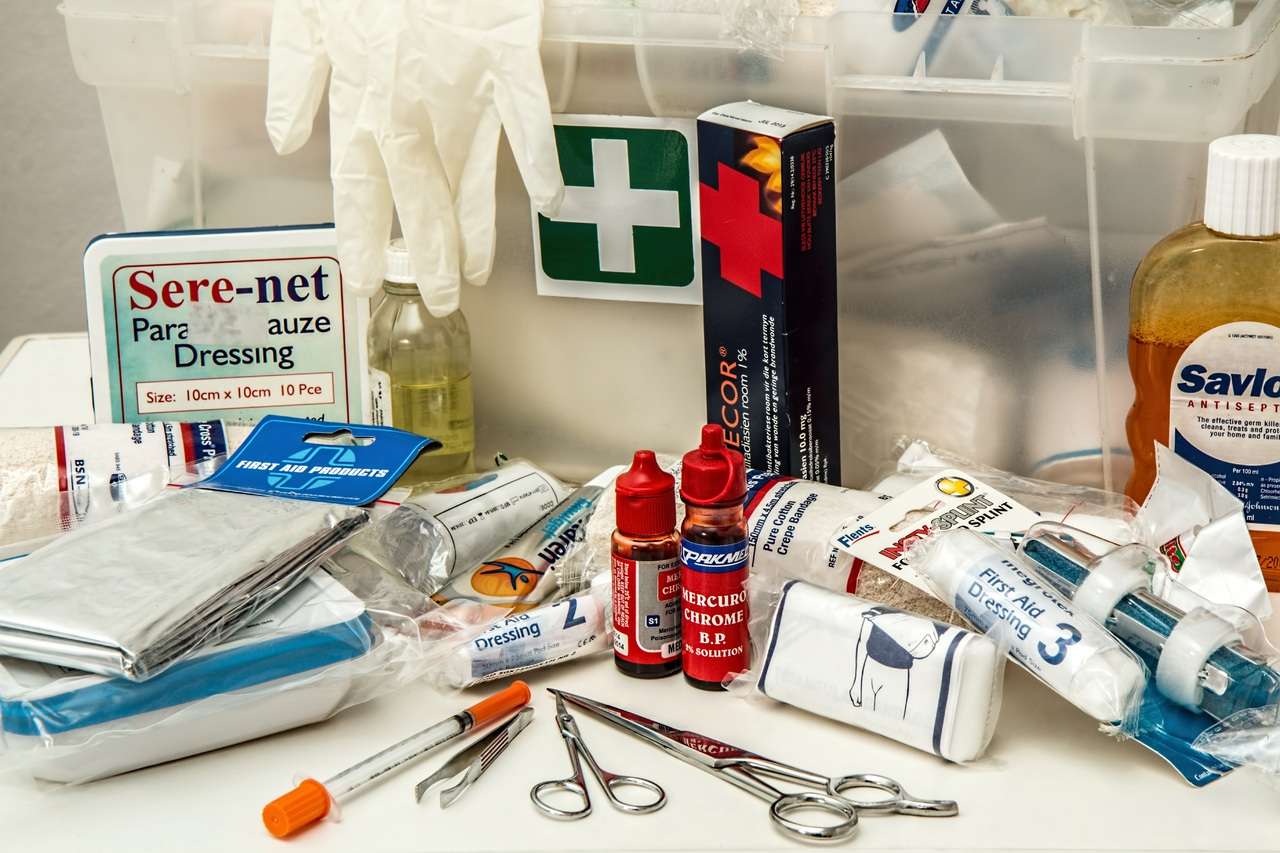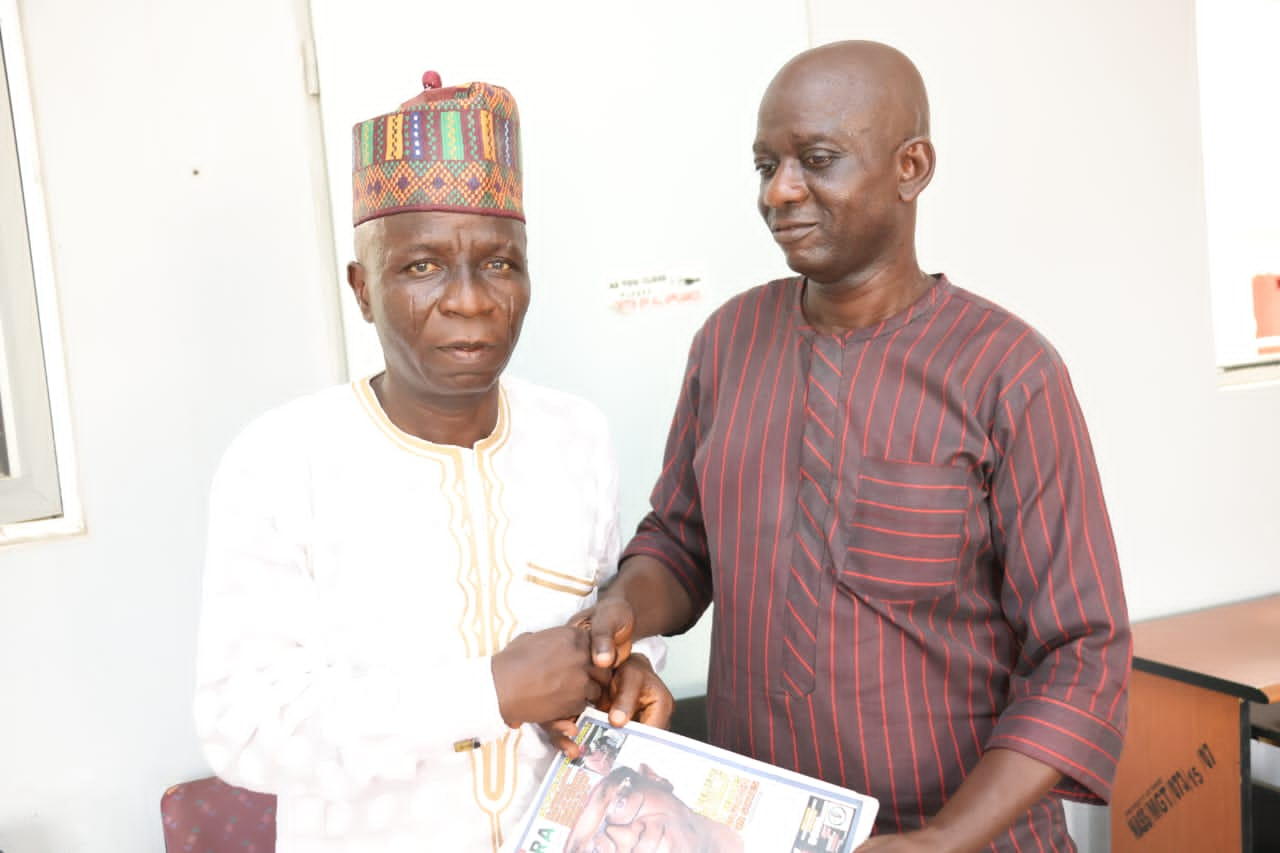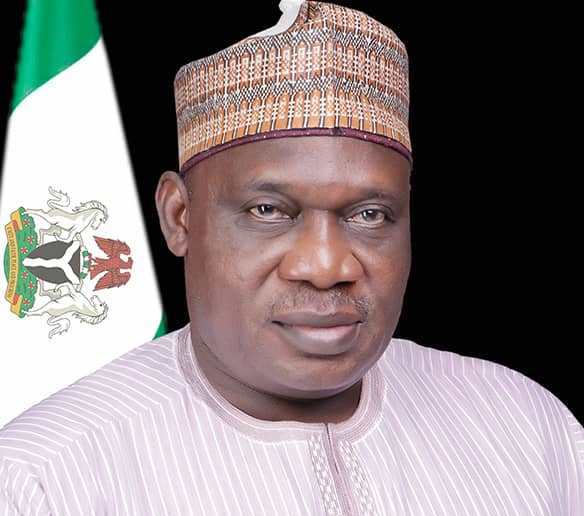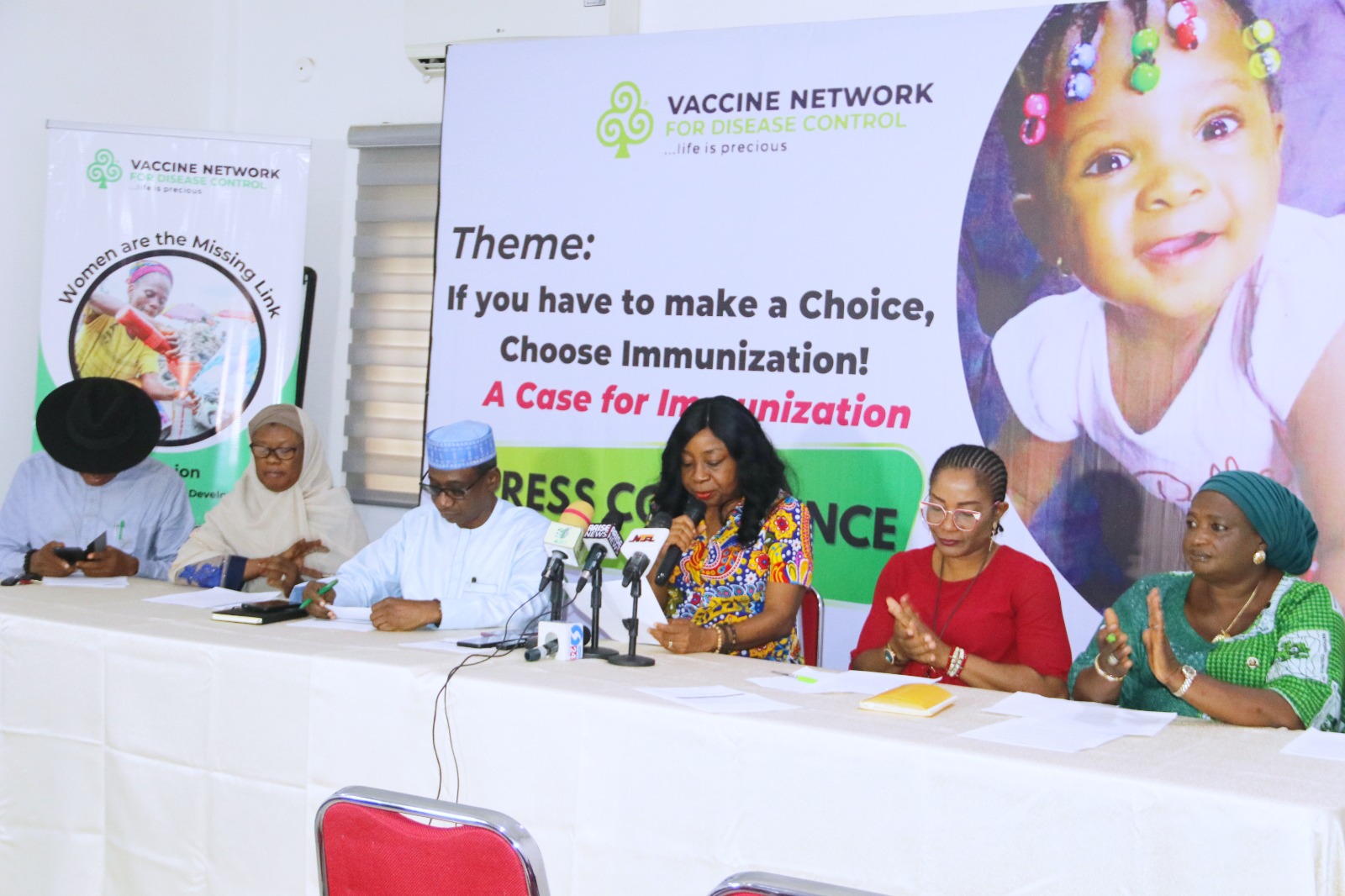
By Fatima Saka
Abuja – coalition of Civil Society Organizations (CSOs), non-governmental organizations (NGOs), and health sector stakeholders on Tuesday issued an urgent call to the Federal Ministry of Finance and Federal Ministry of Budget and Economic Planning to immediately release the outstanding ₦108 billion vaccine fund for 2024, warning that delayed immunization financing is placing the lives of vulnerable Nigerian children at risk.
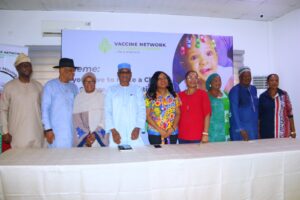
Led by the Vaccine Network for Disease Control (VNDC), the coalition made the appeal during a press conference in Abuja themed “If You Must Choose, Choose Immunization”, stressing that immunization is a non-negotiable public health necessity not a luxury.
“This is a national emergency hidden in plain sight,” said Mrs. Chika Offor, CEO of VNDC. “Over 30% of zero-dose children globally are Nigerian. That is a damning statistic. Every day vaccine funding is delayed, a child somewhere is left vulnerable to preventable death.”
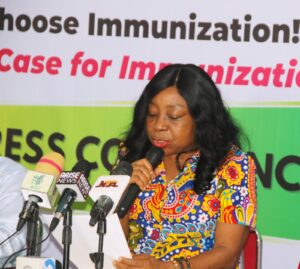
Mrs. Offor highlighted that Immunization saves lives and must remain a top national health priority, even in the face of competing budgetary demands. Globally, WHO and UNICEF estimate that 3.5 to 5 million deaths are prevented each year, primarily among children under five. Yet, 1.5 million children still die annually from diseases that could have been prevented by vaccines. That is why vaccination is not optional,it is essential to child survival.
“Delayed funding for immunization programs puts millions of Nigerian children at risk, risk of diphtheria, meningitis, vaccine stockouts, and other preventable crises.
“Without consistent vaccine funding, over 1 million Nigerian children under five remain at risk of dying from diseases we already have the power to prevent,’’ she said.
“We know the fiscal space is tight. But if a choice must be made, choose immunization,” Offor urged. “Because without healthy children, there is no future for Nigeria.”
The group acknowledged past efforts by President Bola Ahmed Tinubu’s administration, which cleared all 2022 and 2023 vaccine financing obligations and released 25% of 2024 funding. However, they warned that the balance must be disbursed urgently to prevent a collapse in the nation’s immunization programme, with catastrophic implications for child survival, national productivity, and human capital development.
According to the District Health Information Software 2 (DHIS2), Nigeria accounts for a third of the world’s zero-dose children, those who have never received a single vaccine, Hon. Usman Mohammed at the event described this as a ticking time bomb.
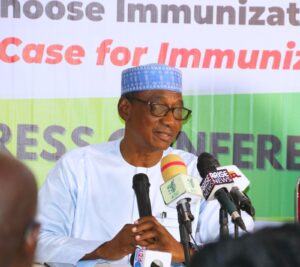
“The cost of inaction is steep,” said Hon. Mohammed. “Treating a child for preventable diseases like measles or pneumonia can cost a poor family between ₦6,000 and ₦11,000 per illness. That doesn’t include transportation, loss of income, or psychological trauma.”
“When vaccines are not funded on time, children die, mothers lose income, and families spiral into poverty,” he added.
Speaking on the National Imperative, Prof. Emmanuel Alhassan, Global Health Advocacy Incubator (GHAI) emphasized that immunization yields high returns, both in health and economic terms.
According to international benchmarks, every ₦1 invested in immunization generates ₦16 in return, “cites a $1 to $44 return on investment,” he said.
“Immunization is the backbone of public health. It’s also an economic strategy. You cannot grow human capital while gambling with child health,” said Dr. Edwards from the National Assembly Health Advocacy team.
Stakeholders also raised concerns that despite approvals and completed documentation for the release of the 2024 funds, bureaucratic bottlenecks remain the only obstacle to disbursement.
“Every approval has been signed. Every document is in place. The only thing missing is the actual release of funds,” lamented one speaker. “We cannot afford to wait for an epidemic before acting.”
Beyond Abuja, the CSOs and partners highlighted their ongoing engagements across five states, including outreach campaigns, subnational budget advocacy, and collaboration with traditional institutions to build trust in vaccines. They cited a recent immunization financing workshop held in partnership with the National Assembly as a key example of cross-sector collaboration.
“We are not just shouting. We are organizing. We are building coalitions. But the government must do its part, and do it now,” said Mr. Gerald Teleh, Chairman of the Vaccine Demand Creation Coalition (VDCC).
Mrs. Saratu J. Abonmann, Desk Officer, National Council for Women’s Societies (NCWS), the largest women-led advocacy group in Nigeria, also weighed in, calling on First Lady Senator Oluremi Tinubu to champion the cause and amplify the demand for urgent vaccine funding.
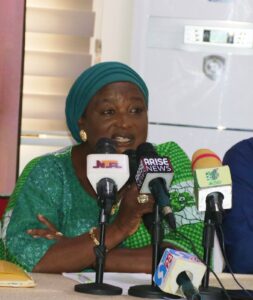
“When a child falls sick, the woman suffers the most, emotionally and economically. Immunization protects children, but it also protects women and the economy,” said an NCWS representative.
Call to Action
The coalition issued a direct plea to Minister of Finance Wale Edun and the Minister of Budget and Economic Planning, Senator Atiku Bagudu, to immediately release the outstanding ₦108 billion and ensure the full disbursement of the ₦231.7 billion allocated for 2025.
Timely immunization is not just a calendar event, it is a lifeline. Every day vaccines are delayed due to slow, fragmented, or incomplete funding, a child somewhere is left vulnerable, their tiny body wide open to diseases they should have been protected from before their first birthday.
To State Governments: We urge state leaders to adopt and adapt frameworks that ensure routine and emergency immunization funding are embedded in state budgets, released timely and utilized efficiently.
To Policymakers: Legislators must ensure that our policy environment supports the allocation and timely release of immunization funds. Because every naira released late could mean the difference between a child’s first birthday and their final breath.
READ ALSO: Education Minister Defends UBEC Boss, Slams “Baseless Smear Campaign” as Reform Gains Rise
To the Private Sector and Civil Society:
Sustainable immunization financing requires multisectoral collaboration.
We call on private actors, NGOs, and civil society to play active roles in advocacy, awareness, and co-financing efforts to strengthen immunization across Nigeria
As the press conference ended, the message was clear: Immunization is not just a health issue, it is a matter of national security, economic stability, and social justice. Delay is no longer an option.


